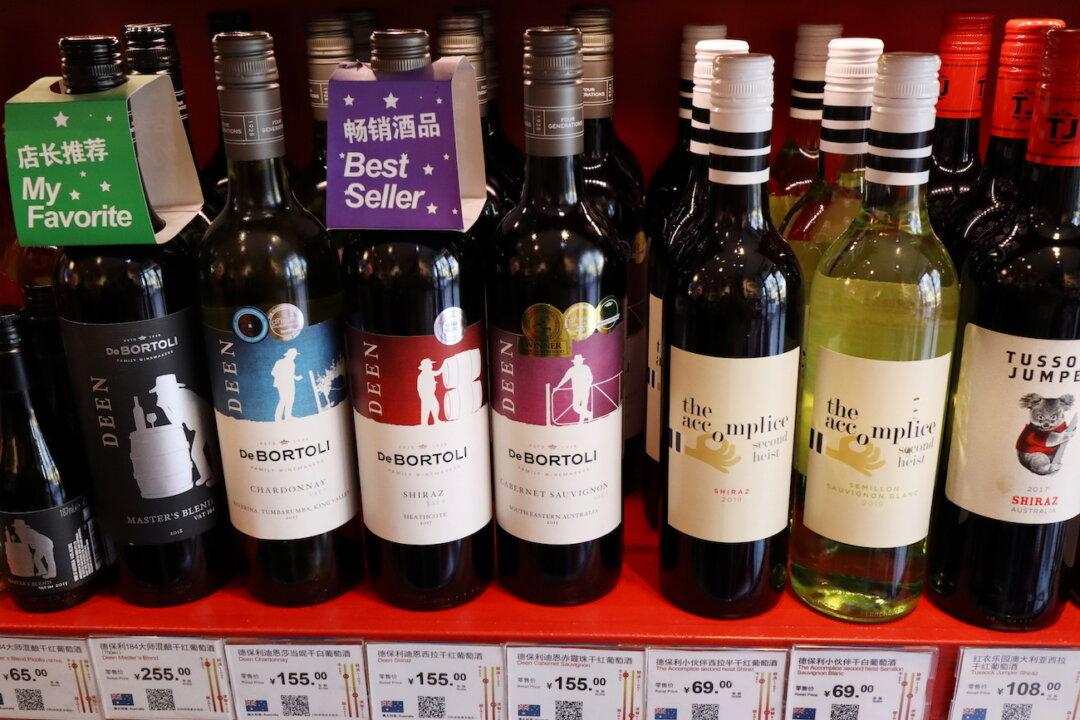As of this weekend, Beijing’s Ministry of Commerce (MOC) will slap tariffs ranging from 100 to 200 percent on Australian wine imports as part of an ongoing “anti-dumping” investigation into the industry.
The MOC announced on Friday, saying “preliminary rulings” found there has been “substantial” dumping of wine from Australia into the Chinese market.





